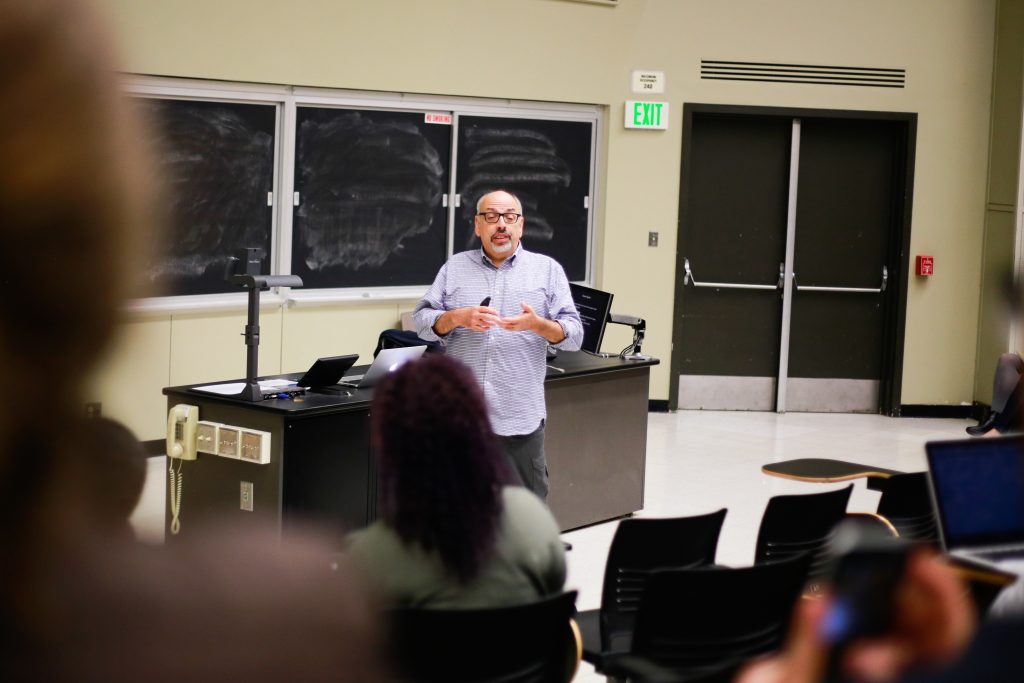
George Homsy, assistant professor of public administration at Binghamton University, highlighted the importance of multilevel governmental cooperation in environmental sustainability in a lecture on Monday.
The talk, titled “From National to Neighborhood,” was hosted by New Student Programs, an organization aiming to provide diverse educational opportunities for students entering BU. It focused on promoting sustainability on a community level.
Julianne Foster, a graduate assistant for New Student Programs and a second-year graduate student studying student affairs administration, said the organization hopes to connect new students to faculty research that they may be unfamiliar with, possibly sparking a new subject of interest.
“The idea of these lectures is to create that connection point with students and faculty, especially if the faculty member is outside of that student’s major, and they learn about something else they might be interested in outside of their declared major, or if they haven’t declared a major yet, because a lot of them are first-year students,” Foster said. “This might give them an idea of what they hope to do at Binghamton, or in the future, or just something else they’re interested in.”
According to Homsy, it’s essential for all levels of government to be involved in making evidence-based decisions on the environment. He also advocated for the use of local knowledge and firsthand experience to drive policy changes.
Homsy emphasized the three E’s of sustainability: environment, equity and economy. According to Homsy, a sustainable community can only be produced when these critical factors work in conjunction.
“A sustainable community sits at the top of those three legs, and if one of those legs is shorter than the other, then the community is wobbly,” Homsy said.
According to Homsy, there are currently 35,000 local governments in the United States, many of which struggle with managing environmental issues because legal action from state and federal governments is required to enact further reaching policy.
A single jurisdiction’s authority is often insufficient in affecting environmental issues, so Homsy argues for a multilateral system of cooperation, involving the local, state and federal governments in the decision-making processes.
Homsy and his team are heading an initiative on Binghamton’s West Side to engage in sustainability work in an underprivileged neighborhood. The projects they are pursuing include “The Mansion: A Community Center at Walnut Street,” which aims to establish a hub for education and community collaboration.
“We’re working with a neighborhood in Binghamton on planning for their own future, on figuring ways to act on their future, and then on understanding how these actions may work well or don’t work well for communities,” Homsy said.
Laura D’Angelo contributed reporting to this article.


